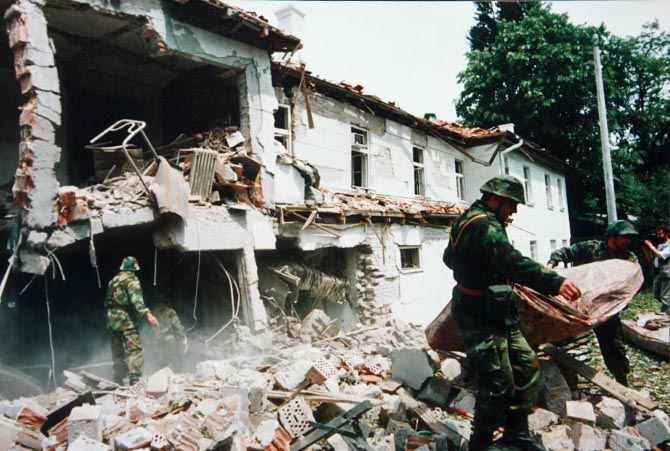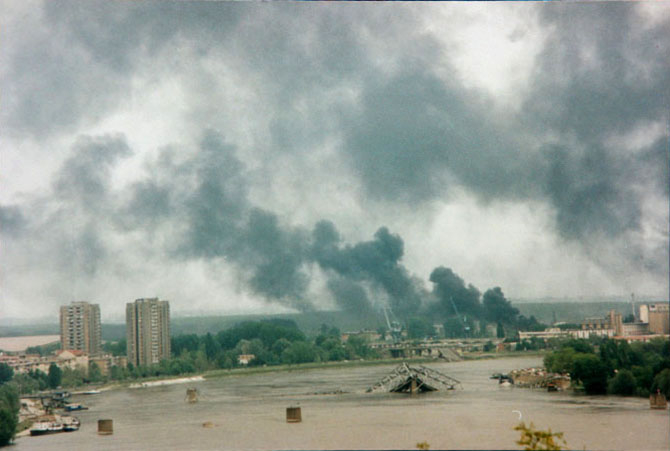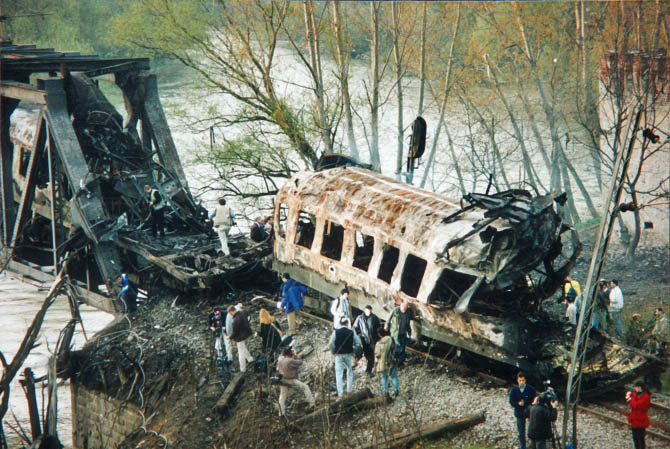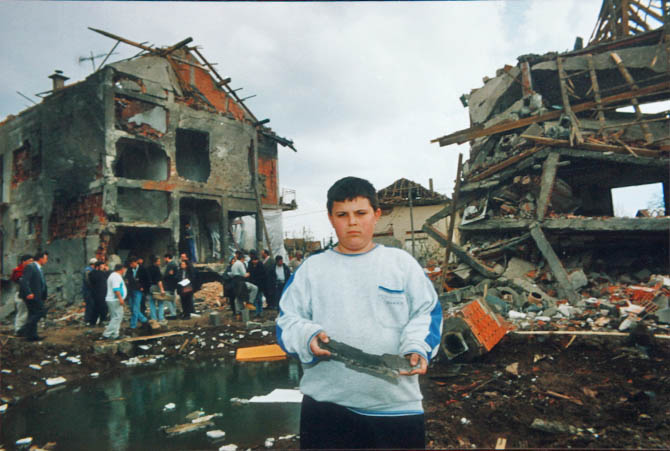Serbia marks another anniversary of NATO attacks
The attacks lasted for 11 weeks and resulted in the deaths of between 1,200 and 4,000 people, according to different sources.
NATO caused heavy damage to Serbia's infrastructure, economy, schools, health institutions, media outlets, monuments of culture.
The western military alliance made the decision to attack Serbia without the approval of the UN Security Council, which represented a precedent.
The order was given to its then commander, U.S. General Wesley Clark by then NATO Secretary General Javier Solana.
Clark later wrote in his book entitled "Modern Warfare" that the planning of the war was already under way in mid-June in 1998 and was completed in August of that year.

Serbia came under attack as the culprit for "the humanitarian catastrophe in Kosovo and the failure of negotiations in Rambouillet, Paris on the future status of the province."
The Paris conference presented Serbia with the proposal to have foreign troops deployed in its territory, which was rejected. The decision not to accept foreign troops was confirmed by the Serbian Assembly, and on March 24, 1999 NATO launched its attacks.
19 countries took part in the operation, using ships in the Adriatic Sea, four air bases in Italy, supported by strategic operators who took off from bases in western Europe.
According to estimates of the Serbian government at least 2,500 people were killed (according to some sources, the total number of fatalities was almost 4,000), while more than 12,500 were injured.

The recently published official data of the Ministry of Defense of Serbia speaks about 1,008 soldiers and policemen killed, while unofficial data shows that 6,000 civilians, including 2,700 children, suffered various degrees of injuries.
The total damage done to the country's economy and infrastructure was estimated at the time at USD 100 billion.
NATO military losses in manpower and technology have never been disclosed.
The Museum of Aviation in Belgrade displays parts of the destroyed F-117 and F-16 aircraft, UAVs, and cruise missiles.
Almost all cities in Serbia came under attack several times during the war that lasted 11 weeks.

The bombing destroyed and damaged 25,000 housing units, 470 km of roads and 595 kilometers of railways.
The attacks also damaged 14 airports, 19 hospitals, 20 health centers, 18 kindergartens, 69 schools, 176 cultural monuments and 44 bridges, while 38 were destroyed.
During the aggression NATO carried out 2,300 air strikes on 995 facilities across the country, while 1,150 combat aircraft launched nearly 420,000 missiles.
NATO also launched 1,300 cruise missiles, dropped over 37,000 cluster bombs, which killed some 200 people and wounded hundreds, and used prohibited ammunition with depleted uranium.

A third of the power capacity of the country was destroyed, two oil refineries, in Pančevo and Novi Sad bombed, while NATO forces used the opportunity to for the first deploy the so-called graphite bombs to disable the power system.
After several attempts to end the war by diplomatic means, the bombing ended with the signing of the Military Technical Agreement in Kumanovo on June 9, 1999, after which the Yugoslav Army (VJ) and Serbian police (MUP) started withdrawing from Kosovo and Metohija.
A day later, the UN Security Council adopted Resolution 1244, and some 37,200 NATO-led KFOR troops from 36 countries were deployed in the province with the task of keeping the peace, security, and ensuring the return of refugees until the widest degree of autonomy was defined for the territory.

A series of commemorative gatherings will be held in Serbia today to mark the anniversary of the start of NATO's war against Serbia.
Top state officials, including the prime minister and the president, will honor the victims.
Wreaths and flowers will be placed at memorials sites by representatives of the army, local authorities, various associations, and political parties.
(Telegraf.rs /B92)
Video: Evo u koje se svrhe koristi sredtsvo koje se nalazilo pored Narodne Skupštine
Telegraf.rs zadržava sva prava nad sadržajem. Za preuzimanje sadržaja pogledajte uputstva na stranici Uslovi korišćenja.


jovana
pa meni su bombardovali kucu sad zivim na ulici znas
Podelite komentar
Nebojša SRBIN
x
Podelite komentar